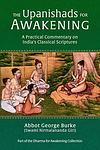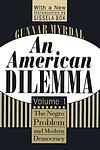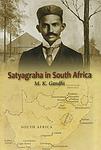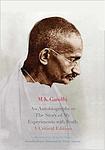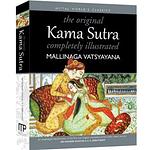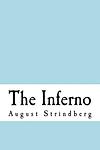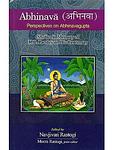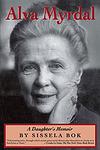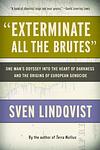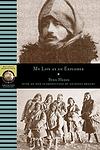The Greatest Swedish, Indian "Nonfiction" Books of All Time
Click to learn how this list is calculated.
This list represents a comprehensive and trusted collection of the greatest books. Developed through a specialized algorithm, it brings together 300 'best of' book lists to form a definitive guide to the world's most acclaimed books. For those interested in how these books are chosen, additional details can be found on the rankings page.
Genres
Countries
Date Range
Reading Statistics
Click the button below to see how many of these books you've read!
Download
If you're interested in downloading this list as a CSV file for use in a spreadsheet application, you can easily do so by clicking the button below. Please note that to ensure a manageable file size and faster download, the CSV will include details for only the first 500 books.
Download-
1. Upanishads by Hindu scripture
The book is a comprehensive compilation of ancient Hindu scriptures known as the Upanishads, which are fundamental to understanding the core philosophies of Hinduism. The text delves into profound spiritual teachings and philosophical dialogues about the nature of reality, the self, and the universe, providing invaluable insights into concepts such as karma, reincarnation, moksha, and the ultimate truth of existence. It serves as a guide to spiritual enlightenment and self-realization, offering timeless wisdom for introspection and personal growth.
-
2. An American Dilemma by Gunnar Myrdal
This book is a comprehensive sociological study on the issues faced by African Americans in the United States during the mid-twentieth century. The author examines the deep-rooted racial discrimination and inequality prevalent in American society, exploring its origins, implications, and potential solutions. The work is notable for its detailed analysis and its impact on subsequent civil rights movements.
-
3. Satyagraha in South Africa by Gandhi
This book is a personal account of the author's experiences during the Indian struggle for civil rights in South Africa. It details the development and implementation of the concept of Satyagraha, or non-violent resistance, as a means of combating social injustice. The book provides a unique insight into the author's philosophies and strategies of peaceful protest, including his belief in the power of truth and the necessity of self-sacrifice in the fight against oppression.
-
4. Bhagavad Gita by Unknown
The book is a 700-verse Hindu scripture that is part of the Indian epic Mahabharata. It takes the form of a dialogue between Prince Arjuna and the god Krishna, who serves as his charioteer. On the battlefield of Kurukshetra, just as the war is about to begin, Arjuna is filled with doubt and moral dilemma about fighting in the battle. Krishna imparts spiritual wisdom and guidance to Arjuna, addressing his concerns and leading him through a profound discourse on various philosophical concepts, including the nature of life, the soul, and one's duties. The text covers topics such as righteousness, devotion, and the paths to spiritual liberation, ultimately encouraging Arjuna to rise to his duty as a warrior with the understanding that the true self is eternal and beyond physical conflict.
-
5. The Story Of My Experiments With Truth by Mahatma Gandhi
This book is an autobiography that details the personal journey of a prominent leader who played a key role in India's struggle for independence from British rule. It explores his philosophy of nonviolent resistance and truth, which he refers to as "Satyagraha," and traces his development from a young, unsure boy into a principled activist committed to social justice. The narrative delves into his experiments with diet, celibacy, and other personal challenges, reflecting his quest for self-improvement and moral integrity, which he believed were essential for political leadership and social reform.
-
6. Kama Sutra by Vātsyāyana
This ancient Indian text is a guide to virtuous and gracious living that discusses the nature of love, family life, and other aspects pertaining to pleasure-oriented faculties of human life. It is a comprehensive manual on the art of love and sexual behavior, providing detailed advice on courtship, marriage, and the act of lovemaking. The text, while often associated solely with sexual positions, covers a wide range of topics including the duties and privileges of a wife, advice for courtesans, and methods to attract others.
-
7. My Story by Kamala Das
"My Story" is an intimate memoir that delves into the life of a woman navigating the complexities of her existence in mid-20th century India. It candidly explores themes of love, marriage, and womanhood, as the author recounts her journey from a young girl to a renowned poet and writer. The narrative is marked by its honesty and emotional depth, addressing the author's unconventional choices and her search for personal freedom amidst the constraints of a traditional society. Her reflections on sexuality, fidelity, and the literary world offer a poignant look at the challenges faced by women in asserting their identity and creativity.
-
8. The Son of a Servant by August Strindberg
"The Son of a Servant" is a semi-autobiographical novel that details the early life of a boy growing up in a working-class family in Sweden during the 19th century. The protagonist, born to a servant, faces numerous hardships and struggles due to his low social status. The book provides a vivid depiction of the social conditions of the time, and the protagonist's journey towards self-discovery and personal development, despite the challenges he faces. The narrative also explores themes of class struggle, poverty, and the pursuit of knowledge.
-
9. Resources, Values And Development by Amartya Sen
"Resources, Values, and Development" is a comprehensive examination of the interplay between the availability of resources, the values that guide their use, and the resulting impact on development. The book challenges traditional economic measures of development, such as GDP, and argues for a broader understanding that incorporates human welfare and freedom. It delves into the role of ethics in economics, the importance of individual capabilities, and the need for equity in the distribution of resources. The author's influential ideas on development economics and social choice theory are presented, advocating for a more humane and inclusive approach to economic development that prioritizes the enhancement of human lives over mere economic growth.
-
10. Abhinavagupta by Abhinavagupta
This book delves into the life and teachings of Abhinavagupta, a seminal figure in Indian philosophy and aesthetics. A scholar from the 10th century Kashmir, Abhinavagupta made significant contributions to the fields of philosophy, mysticism, and the arts. The text explores his works and thoughts within the framework of the non-dual Shaivism of Kashmir, highlighting his theories on aesthetics, particularly the concept of rasa in drama and literature. It provides a comprehensive analysis of his philosophical system, which integrates elements of Tantra, Krama, and Trika philosophies, offering insights into his profound understanding of human consciousness and the divine.
-
11. Alva Myrdal: A Daughter's Memoir by Sissela Bok
This memoir provides an intimate portrayal of a Nobel laureate and prominent figure in international diplomacy and social reform, as seen through the eyes of her daughter. The book delves into the complexities of the subject's public achievements and personal life, exploring the challenges she faced as a woman in the mid-20th century balancing a career with family responsibilities. The daughter's perspective offers a unique insight into the character and legacy of a woman who made significant contributions to social policy and disarmament, while also shedding light on the familial relationships that shaped her life and work.
-
12. Development As Freedom by Amartya Sen
The book in question is a seminal work in the field of economics and development studies, which argues that true development is best understood as the process of expanding the real freedoms that people enjoy. It challenges traditional indicators of growth, such as GDP, suggesting that they fail to capture the essence of human well-being. Instead, it posits that development should be assessed by the range of choices available to individuals, including access to education, healthcare, and the ability to participate in the economic and political life of society. The author emphasizes the interdependence of various types of freedoms, from political rights to economic opportunities, and the role they play in empowering people to live the lives they value.
-
13. Exterminate All The Brutes by Sven Lindqvist
The book is a profound exploration of European imperialism and the roots of genocide, blending travelogue, personal diary, and historical analysis. The narrative delves into the dark history of colonialism, examining how racist ideologies were used to justify the extermination and subjugation of non-European peoples under the guise of civilization and progress. Through a series of interwoven reflections and accounts, the author confronts the violence and atrocities committed by European powers in Africa and beyond, challenging readers to acknowledge and understand the brutal legacy of colonialism that has shaped the modern world.
-
14. Factfulness by Hans Rosling
The book challenges common misconceptions about the state of the world, using a wealth of statistical data to argue that, contrary to popular belief, global living conditions are improving significantly. It introduces ten instincts that distort our perspective—from the fear instinct (which leads us to perceive the world as more frightening than it is) to the destiny instinct (which causes us to assume that the fates of populations are predetermined). The author, a renowned public health expert, encourages readers to adopt a "factful" mindset, which relies on data and evidence to create a more accurate understanding of the world, ultimately fostering a more positive and productive approach to global challenges.
-
15. My Life as an Explorer by Sven Hedin
"My Life as an Explorer" is an autobiographical account of a famous Swedish explorer's adventures across Central Asia in the late 19th and early 20th centuries. The book includes vivid descriptions of his encounters with diverse cultures, dangerous wilderness, and ancient civilizations. The author also shares his experiences of mapping uncharted territories, surviving harsh climates, and uncovering archaeological treasures, providing readers with an intimate glimpse into the life of an explorer during this era.
-
16. Delhi by Khushwant Singh
"Delhi" by Khushwant Singh is a captivating exploration of the city's rich history, culture, and people. Through vivid anecdotes and personal experiences, the author paints a vivid picture of Delhi's transformation from ancient times to the present day. From the Mughal era to British rule, and the struggles of Partition, Singh delves into the city's tumultuous past while highlighting its enduring charm. With a blend of wit and nostalgia, this book offers readers a delightful journey through the vibrant streets, monuments, and diverse communities that make up the heart of Delhi.
-
17. Life 3.0 by Max Tegmark
This book explores the future of artificial intelligence (AI) and its impact on the fabric of human existence, proposing a framework for understanding the progression of life through the lens of technological evolution. It delves into the potential scenarios that could unfold as AI surpasses human intelligence, raising profound questions about consciousness, the role of humans in a world shared with advanced AI, and how society can navigate the ethical, political, and existential challenges this new era presents. The author encourages a proactive approach to designing and governing AI technologies, emphasizing the importance of aligning them with human values and interests to ensure a future where humanity can thrive alongside increasingly intelligent machines.
-
18. No One Is Too Small To Make A Difference by Greta Thunberg
"No One Is Too Small To Make A Difference" is a collection of speeches by Greta Thunberg, a young climate activist who gained international recognition for her efforts to combat climate change. Through her powerful and passionate words, Thunberg emphasizes the urgency of taking action and highlights the responsibility of individuals, governments, and corporations to address the environmental crisis. This book serves as a call to action, inspiring readers to join the global movement for a sustainable future.
Reading Statistics
Click the button below to see how many of these books you've read!
Download
If you're interested in downloading this list as a CSV file for use in a spreadsheet application, you can easily do so by clicking the button below. Please note that to ensure a manageable file size and faster download, the CSV will include details for only the first 500 books.
Download